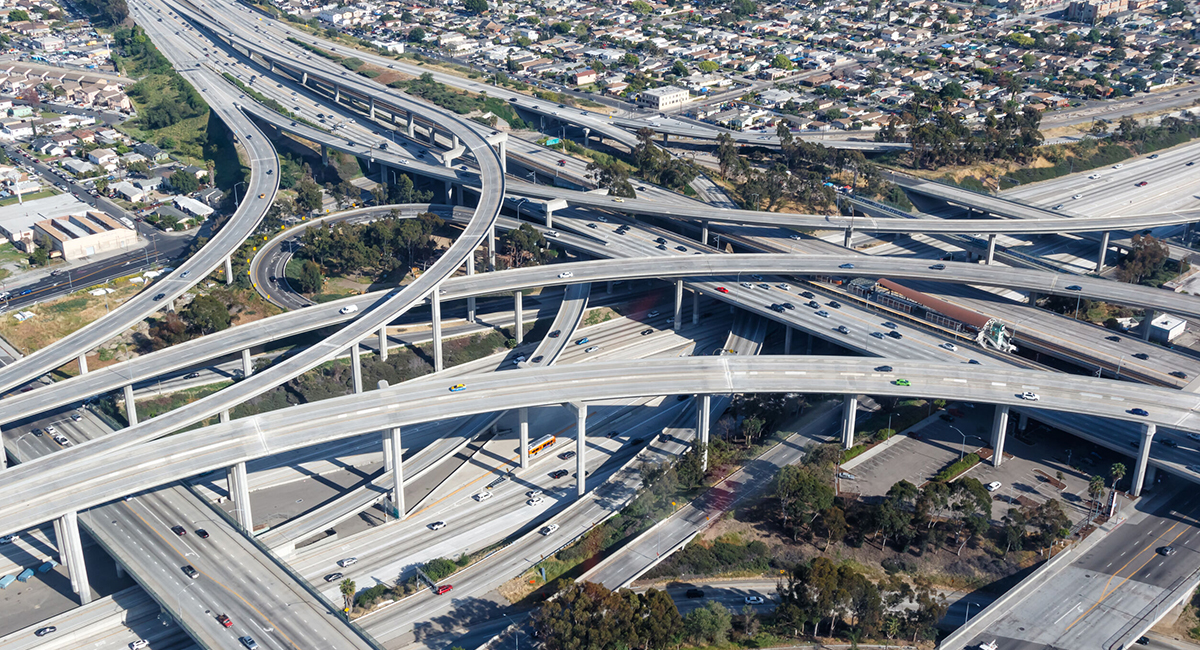President Biden returned from the Middle East recently without the hoped-for promise from Saudi Arabia to ramp up oil production. Not only that, he announced during his trip that he planned to double down on his efforts to wean the United States from fossil fuels—and, if Congress fails to act, would do so through “strong executive action,” which he previewed several days later (July 20) in a brief speech in Massachusetts.
This means Americans hoping for relief in high energy prices will have to be content for now with the White House’s proposal for a three-month federal gas tax holiday, an idea that hasn’t been picking up much support outside of endangered Democrats in marginal congressional districts.
The proposal will, however, perform a valuable service if it opens a long-overdue discussion over how and when to consign the gas tax, and the Highway Trust Fund it replenishes, to bureaucratic oblivion.
Signed into existence by then-President Dwight D. Eisenhower in June 1956, the National System of Interstate and Defense Highways was to be paid for by various taxes—including a truck and trailer sales tax and a heavy vehicle user tax—that would finance the Highway Trust Fund. Most notable was the tax on gasoline, which was set at three cents per gallon.
In defiance of every known law of taxation, the gas tax was supposed to be halved, to 1.5 cents per gallon, in 1972. That, of course, didn’t happen. It currently sits at 18.4 cents per gallon, with the tax on diesel fuel at 24.4 cents a gallon.
The only senator to vote against final passage of the legislation creating the Highway Trust Fund was Russell Long, a Louisiana Democrat. Long, who later in his long career served as chair of the Senate Finance Committee, immortalized his philosophy of taxation in verse: “Don’t tax you / Don’t tax me / Tax that fellow behind the tree.”
Long’s doggerel captures the subsequent evolution of the federal gas tax.
In the 1970s, Congress began diverting a portion of the Highway Trust Fund to public mass transit, light rail buses and bike lanes. Today, about 20% of Highway Trust Fund monies are diverted to other purposes. The percentage going to mass transit—12.8% on average during fiscal years 2010 through 2019, according to the nonpartisan Eno Center for Transportation—is more than two-and-a-half times the percentage of Americans who use mass transit, 40% of whom live in just one city: New York.
Looking at the big picture, what this means is that rural and suburban Americans are subsidizing big-city transit riders. Bond traders and investment bankers taking the train from Chappaqua, New York; Darien, Connecticut; and Short Hills, New Jersey, may be fine people, but why should their transportation costs be subsidized by Chevy Celebrity drivers in Maine, Montana and elsewhere?
When the Highway Trust Fund was created in the 1950s, variations in miles per gallon were not large for most automobiles. Hybrids, electric cars and other alternatives to gas-powered vehicles have widened that difference to a chasm.
Very few hourly wage earners—and especially working poor—can afford to own electric vehicles, hybrids or BMWs. Their automobiles tend to get significantly worse gas mileage than those driven by the affluent. The federal gas tax, in effect, is a regressive weapon aimed at these lower-income Americans.
A mileage-based user fee would be “fairer”—but it also would call down the wrath of the Natural Resources Defense Council and other deep-pocketed Green Establishment organizations.
It seems that half the country is at war—rhetorical war, thank goodness—with the other half. California is not Nebraska, and Vermont is not Montana. America is a big place, and the needs of its 50 states are diverse. A return to serious federalism is in order.
To that end, Sen. Mike Lee, Utah Republican, has introduced versions of his Transportation Empowerment Act in successive Congresses. The latest iteration would slash the federal gasoline tax to 7 cents per gallon, revenue from which would be expended only on projects related to the 46,876-mile Interstate Highway System.
The states would resume their constitutionally appropriate role in transportation policy. And pickup truck drivers in Wyoming would no longer be subsidizing well-tailored Manhattan straphangers.
The Interstate Highway System, while an impressive engineering achievement, cut a devastating swathe through many American cities, displacing upward of a million Americans—typically low-income working people with little political clout—and destroying many historic African American neighborhoods through the government’s exercise of eminent domain.
For better or worse, it is a finished product. Washington hates to sunset any program, but it’s time for a federal government whose competence and prestige are at historic lows to get out of the road building and maintenance business. This should be turned over to states, municipalities and private enterprise, whose promising experiments with toll roads would help restore the “user pays” principle that was embedded, however imperfectly, in the Highway Trust Fund as originally conceived.
Mr. Biden’s federal gas tax holiday proposal is just a three-month gimmick. Let’s make this holiday permanent.








